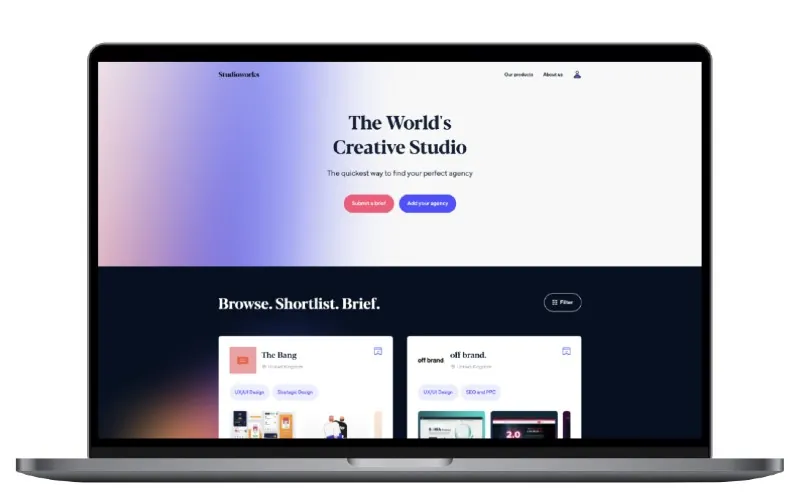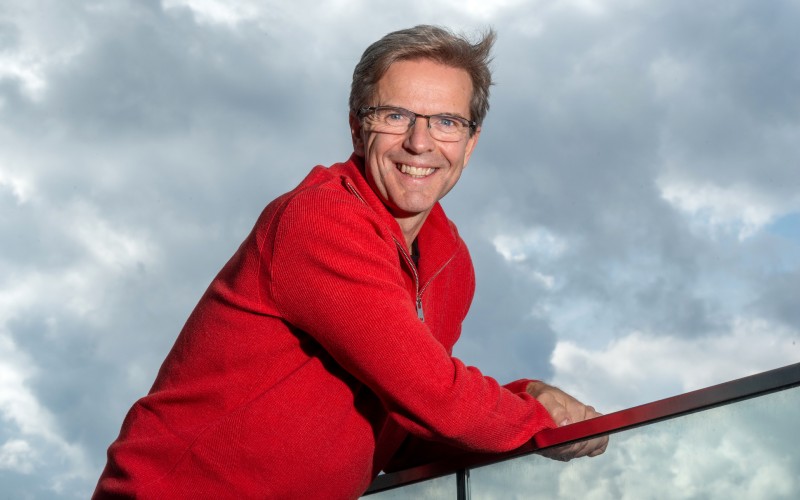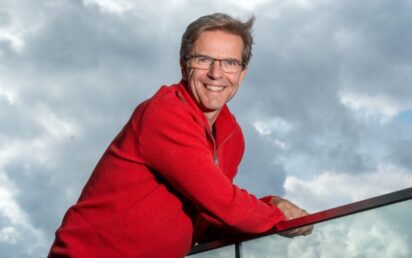When Pete Sayburn and his fellow co-founders sold Market Gravity to Deloitte in 2017, it vindicated eight years of painstaking growth.
The agency, which helped clients to design, prototype and launch to market new propositions and services, had cemented an enviable reputation. “We grew it to over 100 people – but it was one hire at a time!” Sayburn tells TechBlast.
“We were in different geographies and had built a brilliant culture. It was fantastically rewarding. But if you want to grow a business in that kind of industry, you do have to invest in the team, one person at a time.”
Running an agency – whether it provides marketing, development or social media services, or a combination of these – is a time-consuming enough process. Those serious about scaling their business and adding value to its service proposition face an even greater drain on resources.
After three years as a partner at Deloitte Digital, it was time for Sayburn to launch his next venture. Teaming up with Market Gravity co-founders Gideon Hyde, Robin Scarborough and Paul Bowman, as well as CFO Neil Barnett and CCO Phil Kohler, Studiospace – initially known as Studioworks – was born in London.
“We knew that for the next venture, we wanted to do something that was more scalable,” says CEO Sayburn. “It was going to be technology-enabled, exploit some of the network efficiencies that you can now do through digital, and we were going to build an alternative to the traditional holding company agency model – a digital platform and a community of independent agencies.”
“We’ve now done that. We’ve got a much more scalable income stream because it’s not related to the headcount growth – that means we can focus the business on continually looking after those brand owners and customers and helping them with a whole range of different topics and services.
“Agencies are often held back in their growth by the linear process of sell a project, deliver a project, then asking: what are we going to do next?”
Global marketplace
Studiospace is a global marketplace helping senior marketers to hire specialist, founder-led agencies spread around a dozen countries. After posting a brief, this is matched with relevant suppliers among the almost 200 agencies registered on the platform.
Studiospace – which ranked eighth on our sister publication BusinessCloud’s MarTech 50 – then arranges ‘chemistry meetings’ between the brand and the agency, effectively working as a matchmaker.

“It could be advertising creative, it could be digital experience, insightful market research, TikTok marketing,” explains Sayburn. “A lot of the best talent actually sits in some of the smaller independent businesses, rather than the big agencies.”
The platform manages all agreed creative, digital and marketing services via one contract. It also handles payments, ensuring the agencies are paid on time, addressing the huge cash flow problem resulting from late payments. Studiospace takes a commission from the winning agency’s fee.
MarTech 50 – UK’s most innovative marketing technology creators
Sayburn says big brands are keen to work with fresh talent – but smaller independent businesses cannot cope with the admin and red tape that they demand from their suppliers.
“The indie agencies are so strong in terms of their identity, their skills, their specialisms,” he explains. “It’s quite a different approach to the existing process, where every three years a brand does a review of its agency roster, puts together an approved supplier list and gives all of the work to one or two agencies.
“It has limitless capacity – it only takes a day or two to add another agency so it’s really fast for us to be able to get more capacity and a wider range of services.
“It took WPP 50 years and hundreds and hundreds of acquisitions to be able to offer a full suite of services. I can onboard another agency in 24 hours and have another 100 people available, ready to work on your marketing challenge. That is the magic of the marketplace.”
Since going live in early 2022, Studiospace has pulled in major brands including Aviva, Jaguar Land Rover, Gala Games and AXA.
The startup, which employs around 15 staff, raised £1.5 million of funding from Fuel Ventures late last year to grow the business in the UK and in Australia, where it has a growing office in Sydney, and has also launched a base in New York.
Proving ground
Market Gravity was far from Sayburn’s first foray into entrepreneurship and brand-building. Around the time of the Dotcom boom, he helped launch several technology ventures as a consultant at Cambridge Technology Partners in markets including the UK, Netherlands, Mexico, Australia and USA.
As a partner at Edengene, he then delivered large-scale growth strategy, innovation and new venture creation programmes, working with the likes of Lloyds Banking Group, Standard Life, BT, Santander and nPower.
“I learned that there is plenty of entrepreneurial passion and enthusiasm in big companies – but it’s really hard to get over the hurdles of process, procedures and bureaucracy they have built to manage risk and costs,” he says. “Therefore you have to do something different.
“We would set up these little ventures, smart new brands, to try to create new markets and tap into the assets of the big company while avoiding those drawbacks.
“When building these brands, you have to be entrepreneurial to find resource: you raise money internally rather than externally most of the time, but it’s an equivalent thing. You still have to influence people and work out who the different players are in the business.
“But it is a good proving ground for entrepreneurship, especially for people in the first couple of steps in their career: they’re not ready to do their own startup yet, but can develop new brands, new businesses from within a big company and learn the ropes.”
Advice
Sayburn advises first-time entrepreneurs to “get something in the market while also having a big vision of what you’re trying to realise”.
He adds: “How you bridge between the two is the biggest challenge you’ll face: set your strategy, but be prepared to change quite frequently based on what you learn.
“Your first two or three customers are going to be incredibly important, so make sure that you do the type of work with them that you want to be doing [long-term] because you’re going to over-invest in those.”
He also believes that every hire can potentially have a huge influence on a company’s success. “You have to nurture that, create an environment where they can thrive.
“One of the things that I learned to do over time was to get at least as much satisfaction from seeing team members succeed as I maybe did myself when I started out.”


